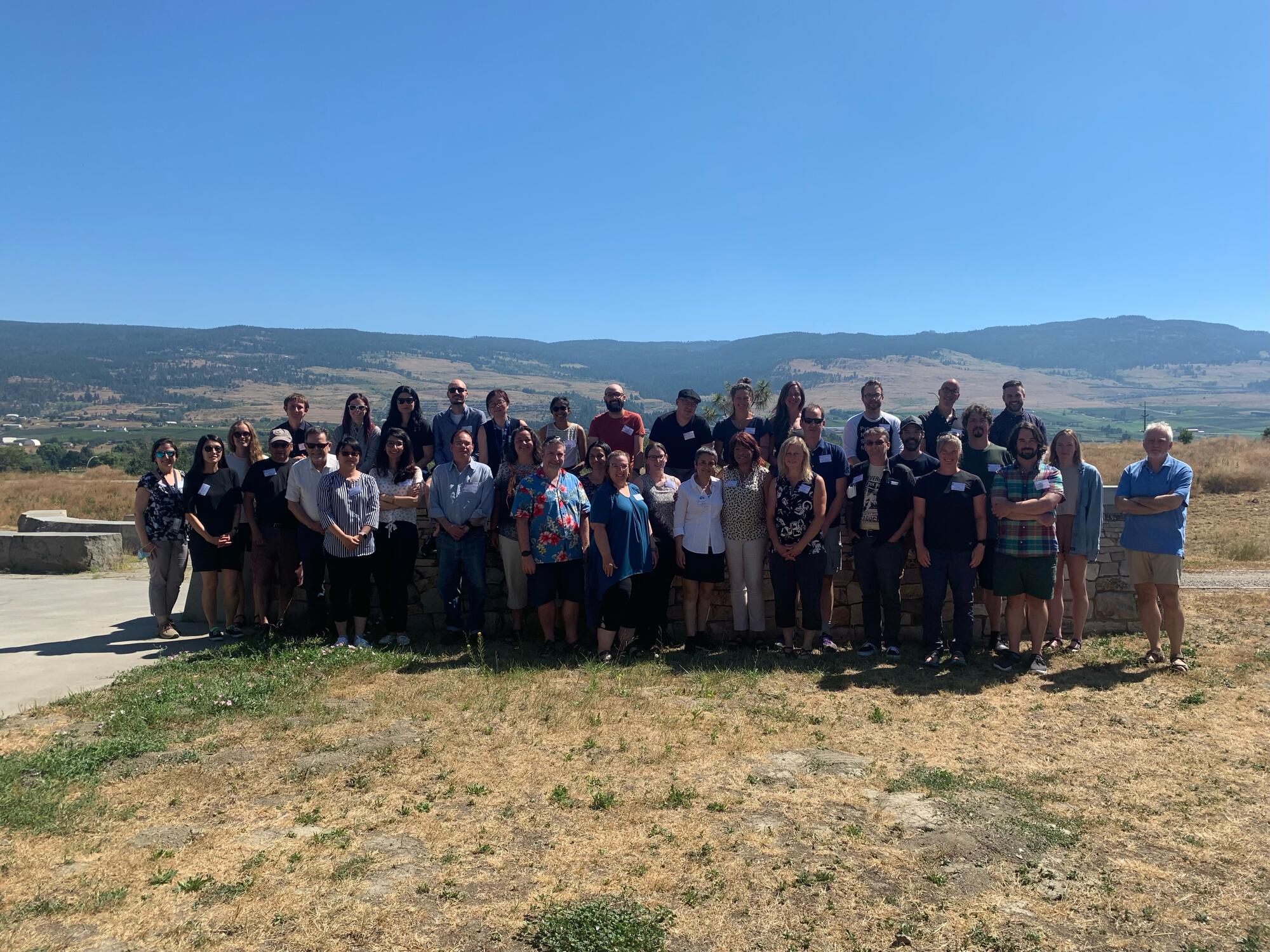Guest post by Anton Mosunov, Math Undergraduate Group (amosunov@uwaterloo.ca)
In this blog post, I will tell you about some exciting work done by our working group at the Aug 7-12 Okanagan BIRS Workshop Teaching First-year University Mathematics Courses: Past, Present, and Future. Together with Lauren DeDieu, Chunlei Ge, Spectrum Han, Asia Matthews, Vilma Mesa, Anton Mosunov and Yas Yamin, I explored what virtues, knowledge, and skills a university mathematics instructor will need in 2030 to navigate their and their students’ well-being in the context of learning mathematics. After a series of conversations, our team converged on the following list:
- Curiosity About Teaching. Willing to grow as both teacher and mathematician, desiring to investigate and try out new teaching practices.
- Knowledge of Teaching and Learning. Being aware of research related to teaching and learning (metacognition, growth mindset, the Testing Effect, the Dunning-Krueger effect, etc.). Deploying teaching practices whose effectiveness was demonstrated by research.
- Compassion and Empathy. Being aware of issues related to Equity, Diversity, and Inclusion (EDI). Understanding how to notice and address these issues within their own classroom. These virtues become even more important in COVID / post-COVID era, as many of our students are entering higher education after studying for several years in isolation from their peers.
- Desire to Align Actions with Values. Reflecting on your own values as educators and aligning each action we take with these values.
- Transparency. Providing humanizing experience for students by developing trust, fostering student-instructor and student-student connections, explaining our decisions, being transparent about grading, countering math anxiety.
- Adaptability. Understanding who our students are, what their learning needs are, and making necessary changes to our teaching practices based on these observations, while preserving our educational standards. As times change and our students change, so should we.
- Embracing Thinking Processes. As mathematicians, we understand that knowledge is acquired not just through reading textbooks and listening to lectures, but primarily through exploration, investigation, and practice. This is not how mathematics is currently taught and how understanding of mathematics is being assessed. A culture shift is needed, so that our students do mathematics while receiving guidance from experts in their field, and that our assessments enable them not just to complete routine tasks, but also to explore mathematics (e.g., prove a given statement vs. find out if a given statement is true or false, and if it is false, think what assumptions you need to introduce so to make it true).
As faculty members, we can do several things to ensure that we and our colleagues acquire these virtues, knowledge, and skills. First, we can ask that each new faculty member has a mentor who is recognized for their excellence in teaching and learning. Second, we can contribute to building community. Such simple things as going for lunch together or organizing a book/podcast club help to establish a collegial environment and encourage deep conversations about teaching among instructors. Ideally, snacks provided during these meetings should be funded by the department. Third, in collaboration with our Teaching Excellence centres, we can establish training programs for graduate students who are willing to improve their teaching of mathematics and to deepen their understanding of the needs of the first-year students. Participants of such programs could be exposed to assessment theory, observe teaching of others, be provided with opportunities to be observed, and many more. A description of one such program offered at the Faculty of Mathematics (University of Waterloo) can be found in [1].
At the departmental and institutional levels, it is important to work towards a culture shift, ensuring that faculty members are provided with incentives for professional growth, for example, by adding a question on annual review asking about the instructor's support of EDI or contributions to the Scholarship of Teaching and Learning. As many instructors do not have time or funding (or both) to engage with such professional activities, it is important to remind the administration to provide us with non-teaching terms, as well as resources to attend and organize educational conferences and workshops, and to further our development as instructors of first year courses. At such workshops we can get a chance to talk not just with other mathematics educators, but also with professionals in educational research. We hope that, through our joint efforts, those instructors that will join our departments in 2030 will find themselves surrounded with passionate colleagues in an environment that breeds teaching innovation!
References
[1] C. Bruni, A graduate student instructor training seminar, CMS Notes 53 (6), December 2021

